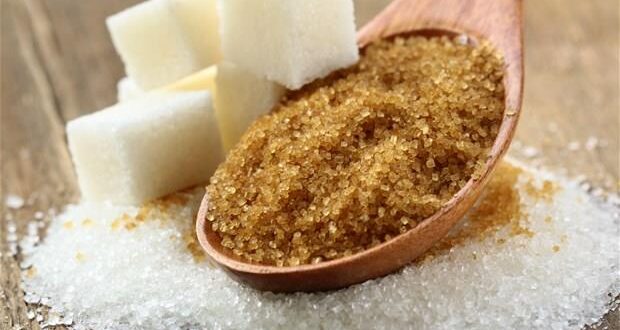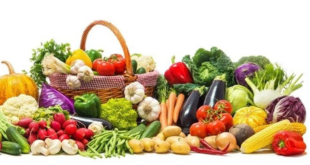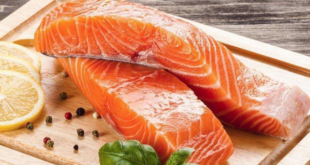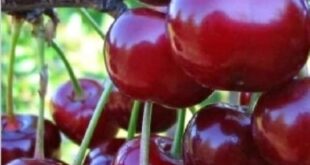Report Highlights:
Sugar beet production and planting area is forecast at 19.5 million metric tons (MMT) and 320,000
hectares (ha) in MY 2021/22, assuming favorable growing conditions. The quotas for MY 2021/22 were
announced on March 20, 2021 by a presidential decree as 2.7 MMT for sugar beets and 67,500 MT for
starch based sugar. This amount is identical to the previous two years. Turkey lifted the restriction on
refined sugar exports as of December 2020.
PRODUCTION…
Sugar Beets…
Production of sugar beets, and consequently sugar, is limited to the quotas specified by the Turkish
Government. Turkey produces sugar from sugar beets in most regions, but the majority of production
comes from the Central Anatolia region. Konya, Eskisehir, Ankara, and Karaman are the main producer
provinces in Central Anatolia. Sugar beet fields are rotated with cereals, pulses, fodder crops, and
sunflowers. According to farmers, planting sugar beet provides up to a 20 percent yield increase when
grown in rotation. Sugar beets are planted in the spring (April), and the harvest begins in
October. However, these periods vary slightly according to the climate conditions of the region.
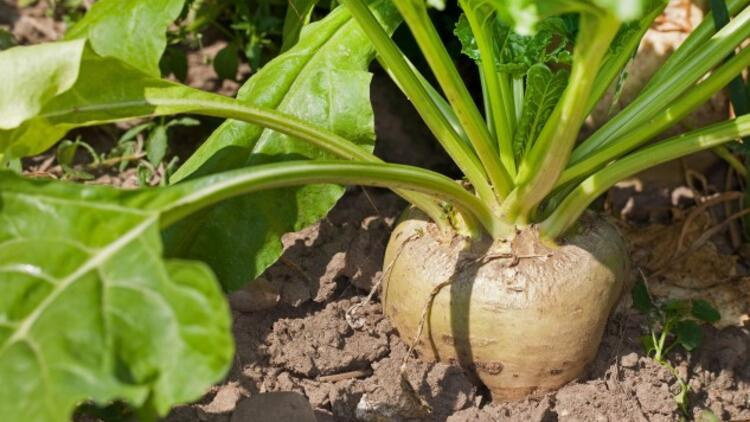
Sugar beet production and planting area is forecast at 19.5 million metric tons (MMT) and 320,000
hectares (ha) in MY 2021/22, assuming favorable growing conditions in line with last year under the
production quota. These are now set by Presidential Decree as of March 2021.
Post’s revised sugar beet production and planting area for MY 2020/21 is also estimated at 19.5 MMT
and 320,000 ha, due to better yields than expected.
The process of privatizing ten state-owned sugar factories has finished. However, the last three years
were very dramatic in terms of sugar policy and debates on sugar in Turkey. The uncertainty of the
Sugar Board, sugar quotas, and the announcement to privatize state-owned sugar beet factories caused
stress for producers and farmers. After the privatization of some sugar factories and some planting area
losses in recent years, the sugar beet planting area partly rebounded last year. A slight increase in the
sugar beet quota resulted in production of 18.5 MMT of sugar beets from a harvested area of 310,000
hectares in marketing year (MY) 2019/20. Factories begin processing sugar beets in the beginning of
October and finish in January, in a period called the campaign period. Currently, the average yield is
about 60 metric tons per hectare.
Ethanol and Molasses…
Molasses is a side product of sugar production from sugar beets, and production was around 750,000
MT in 2020. A great majority is used in the feed sector. The remainder is used for ethyl alcohol
production and other purposes.
Sugar beets are the main source of bioethanol production in Turkey, followed by corn and wheat. No
additional sugar beets are planted to produce this bioethanol as it is produced from molasses. Production
of these side products is increasing in parallel with the number of beets utilized by the factories. There
are three plants in Turkey producing fuel-purpose bioethanol with an established total production of 160
million liters annually.
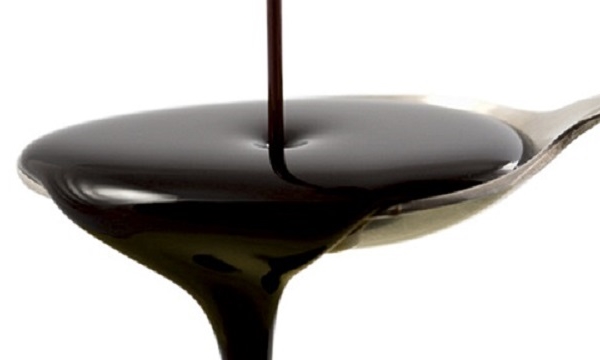
The regulation on blending ethanol produced from domestic agricultural products with gasoline was first
introduced in 2013 to comply with renewable energy policies, reduce import dependency in energy, and
support the agricultural sector, according to Turkey’s Energy Market Regulatory Authority. The
percentage of ethanol blended with gasoline types was raised to 3 percent from 2 percent in 2014.
As a measure taken to combat Covid-19, on March 13, 2020, Turkey suspended the requirement to
include ethanol in gasoline for three months in order to provide an additional 20,000 cubic meters of
ethanol capacity for the production of disinfectants and colognes in the country.
Turkey also removed tariffs on ethyl alcohol imports amid its pandemic response, announcing the
decision in the Official Gazette on March 25, 2020. The 10 percent tariff was reinstituted on September
14, 2020. This measure aimed to support the production of disinfectant and cologne (kolonya), a
traditional ethanol-based scented disinfectant in Turkey and was only valid for imports for this purpose.
CONSUMPTION…
With a population of approximately 83 million, Turkey is a significant sugar consumer. Turkey’s annual
per capita consumption of total sugar is estimated to be 30 kg. Sugar consumption breaks down to about
80 percent used by the industry and 20 percent by households.
Currently, Turkey’s total annual sugar and sweetener consumption is almost 3 MMT, where beet sugar
accounts for between 2.8-2.9 MMT and remaining is starch-based sugar. Increasing urbanization and the
subsequent changes to lifestyles and eating habits play an important role in increasing sugar
consumption. Starch-based sweeteners that are derived from corn are not consumed directly but are used
by the industry as an ingredient in the production of candies, baked products, traditional desserts, ice
cream, helva, jams, and alcoholic and non-alcoholic beverages.
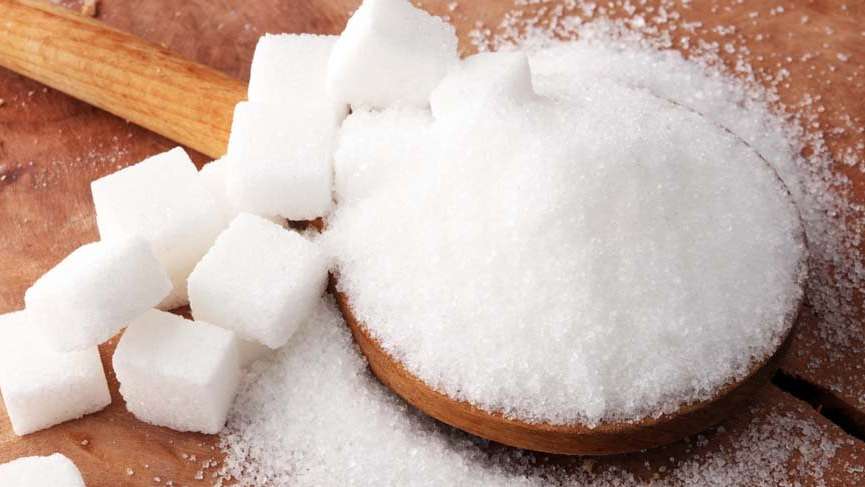
Post revised the centrifugal sugar consumption forecast to 2.91 MMT in MY 2020/21 which is slightly
lower than previously forecast and previous year, mainly due lower industrial consumption. The
centrifugal sugar consumption is expected to remain high at 2.94 MMT in accordance with higher
demand from industrial consumption in MY2021/22.
TRADE and TRADE POLICY…
In order to provide competitively priced raw materials for end-use products that are exported, a number
of Turkish agricultural exports benefit from Turkey’s Inward Processing Regime (IPR) policy. Sugar
can be imported tariff free if used in products that will be exported and not marketed domestically.
Almost all sugar imports in recent years have been done under the scope of the IPR with zero tariffs by
sugar product exporters. If imported for the domestic market, the tariff on sugar is 135 percent. The high
fructose corn syrup (HFCS) tariff is also 135 percent. Therefore, sugar imported for use in the domestic
market is limited to specialty sugar that is not domestically produced (for medical, laboratory use, etc.).
Turkey’s import and export figures for sugar in MY 2019/20 and for the first five months of MY
2020/21 are given in the below table.
Due to an export restriction on sugar which started in May 2020 as a measure related to Covid-19,
Turkey exported only 773 MT of sugar. However, Turkey lifted this restriction in December 2020 after a
better harvest. Turkey exported 59,218 MT of beet sugar during the first five months of MT 2020/21.
Post revised the export estimates from 5,000 MT to 1,000 MT of sugar in MY 2019/20 due to the export
restriction. Post also revised the export estimates from 5,000 MT to 90,000 MT raw sugar equivalent basis, for sugar in MY 2020/21 due to the increased exports as a result of the end of the export
restriction in December 2020. For MY 2021/22, sugar exports are projected at 90,000 MT, raw sugar
equivalent basis, assuming stable demand from neighboring countries without any export restriction.
Post revised the import estimates from 230,000 MT to 250,000 MT raw sugar equivalent basis for sugar
in MY 2019/20 due to an increase in demand from sugar product exporters. However, Turkey imported
just 68,817 MT of sugar during the first five months of MY 2020/21 compared to 106,878 MT in the
same period of the previous year. Post revised the import forecast down to 200,000 MT raw sugar
equivalent basis for sugar in MY 2020/21 due to the decrease in demand from sugar product exporters.
For MY 2021/22, sugar imports into Turkey are projected at 230,000 MT, raw sugar equivalent basis,
with stable demand from sugar product exporters under normal trade circumstances assuming a
normalization after Covid-19.
Source: USDA, Foreign Agricultural Service (FAS)
 THE GLOBAL WINDOW OF TURKISH FOOD AND AGRICULTURE The Global Window of Turkish Food and Agriculture Sector
THE GLOBAL WINDOW OF TURKISH FOOD AND AGRICULTURE The Global Window of Turkish Food and Agriculture Sector


